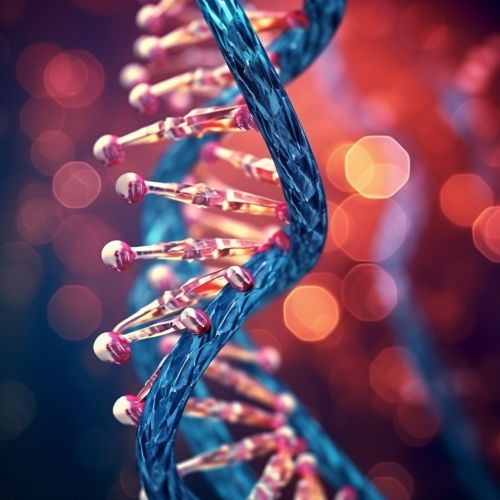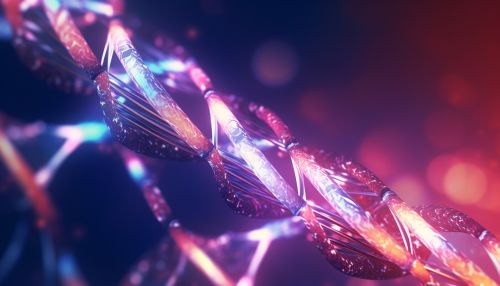Genetic disorder
Introduction
A genetic disorder is a disease caused by an abnormality in an individual's genetic material. These disorders are usually inherited from the parents' genes but can also occur spontaneously due to mutations or changes in the DNA. Since genes dictate how the body develops and functions, any disruption can lead to a variety of health problems.
Types of Genetic Disorders
There are several types of genetic disorders, which can be classified based on how they are inherited and the nature of the genetic alteration.
Single-Gene Disorders
Single-gene disorders, also known as Mendelian disorders, are caused by changes or mutations in the DNA sequence of a single gene. Examples include Cystic fibrosis, Sickle cell anemia, and Huntington's disease.
Chromosomal Disorders
Chromosomal disorders occur when chromosomes, the structures that carry genes, are altered. These disorders can be caused by the presence of an extra or missing copy of a chromosome. Examples include Down syndrome, Turner syndrome, and Klinefelter syndrome.
Complex Disorders
Complex disorders, also known as multifactorial disorders, involve mutations in multiple genes, often coupled with environmental factors. Examples include heart disease, high blood pressure, Alzheimer's disease, arthritis, diabetes, cancer, and obesity.
Causes of Genetic Disorders
Genetic disorders can be caused by various factors including changes in DNA sequence, chromosomal alterations, and environmental influences.
DNA Sequence Changes
Changes in the DNA sequence of a single gene can cause single-gene disorders. These changes can be small, like a single base pair mutation, or large, involving a deletion of many genes.
Chromosomal Alterations
Changes in the number or structure of chromosomes can cause chromosomal disorders. These changes can occur during the formation of reproductive cells, during early fetal development, or in any cell after birth.
Environmental Influences
Environmental factors can interact with the genetic blueprint and cause genetic disorders. These factors can include diet, exposure to toxins, and other lifestyle factors.


Diagnosis of Genetic Disorders
Diagnosis of genetic disorders usually involves a combination of genetic testing, physical examination, family history, and diagnostic imaging.
Genetic Testing
Genetic testing is a type of medical test that identifies changes in chromosomes, genes, or proteins. The results of these tests can confirm or rule out a suspected genetic disorder or help determine a person's chance of developing or passing on a genetic disorder.
Physical Examination
A thorough physical examination can help identify the presence of a genetic disorder. This can include observing physical characteristics that are typical of a specific disorder.
Family History
A detailed family history can help identify potential genetic disorders. This can include information about any health problems that have occurred in close relatives.
Diagnostic Imaging
Diagnostic imaging techniques, such as X-rays, CT scans, and MRI scans, can help identify abnormalities associated with genetic disorders.
Treatment of Genetic Disorders
Treatment for genetic disorders depends on the specific disorder and the symptoms present. Some treatments can help manage symptoms, while others can fix the underlying genetic problem.
Symptom Management
Symptom management is a key part of treatment for many genetic disorders. This can include physical therapy, medication, and surgery.
Gene Therapy
Gene therapy is a treatment approach that involves introducing, removing, or changing genetic material within a person's cells to treat or prevent disease.
Prevention of Genetic Disorders
While it is not always possible to prevent genetic disorders, there are some steps that can be taken to reduce the risk. These include genetic counseling and prenatal testing.
Genetic Counseling
Genetic counseling is a service that provides information and support to people who have, or may be at risk for, genetic disorders.
Prenatal Testing
Prenatal testing can identify genetic disorders in the fetus. This can help parents make informed decisions about their pregnancy and prepare for the birth of a child with a genetic disorder.
